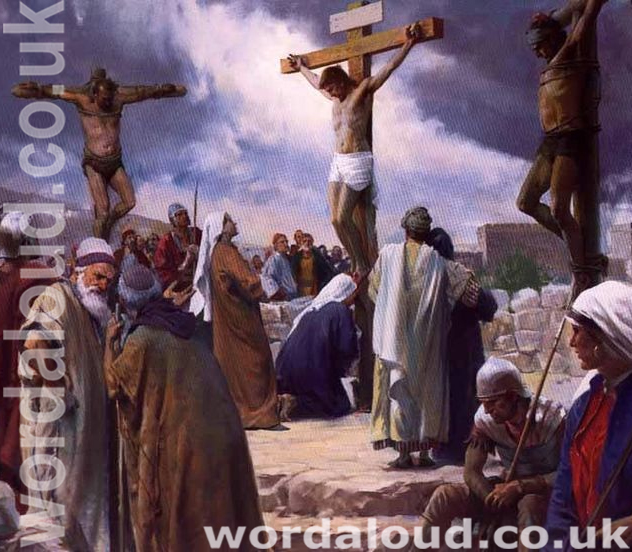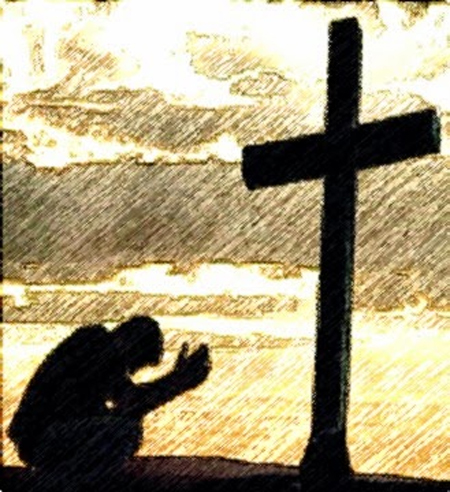Christian Art | Prayer With Jesus | Psalms | Prayer For Protection From Enemies | King David As A Boy | Audio KJV | King James Audio Bible
Psalm 64 | King James Audio Bible
You Tube | Psalm 64 KJV | King James Version | Audio Bible | Word Aloud
Psalm 64 is a prayer with urgency and desperation. The psalmist cries to God, seeking God’s divine intervention and protection from those who conspire against him. It is a prayer of a righteous soul facing peril, invoking presence of God as refuge and strength.
Psalm 64 expresses themes of divine protection, justice and inherent tension between righteous and wicked. The psalmist perceives God as a protective shield, a refuge and a fortress. The psalm is an acknowledgment of God’s power to shield the faithful from harm and danger. Use of such imagery underscores unwavering trust and faith of the psalmist in God’s ability to provide sanctuary amidst turmoil.
Simultaneously, there is longing for justice in this prayer. The psalmist believes that God will hold the wicked accountable for their malicious deeds. The psalm reflects a broader theological theme: the faithful look to God not only for protection but also for moral and ethical guidance. The plea for justice signifies belief in a divine moral order, where wrongdoing is eventually set right.
The psalm’s ending verses express the psalmist’s unwavering trust in God. The psalm becomes a message of hope, declaring that, in the face of adversity and persecution, strength can be found in faith and trust. Even when confronted with schemes of the wicked, the righteous can find refuge in their relationship with God.

Psalm 64 | King James Audio Bible KJV | Love Revealed By Jesus Christ
Hear my voice, O God, in my prayer: preserve my life from fear of the enemy.
Hide me from the secret counsel of the wicked; from the insurrection of the workers of iniquity:
Who whet their tongue like a sword, and bend their bows to shoot their arrows, even bitter words:
That they may shoot in secret at the perfect: suddenly do they shoot at him, and fear not.
They encourage themselves in an evil matter: they commune of laying snares privily; they say, Who shall see them?
They search out iniquities; they accomplish a diligent search: both the inward thought of every one of them, and the heart, is deep.
But God shall shoot at them with an arrow; suddenly shall they be wounded.
So they shall make their own tongue to fall upon themselves: all that see them shall flee away.
And all men shall fear, and shall declare the work of God; for they shall wisely consider of his doing.
The righteous shall be glad in the Lord, and shall trust in him; and all the upright in heart shall glory.’
Key Themes Of The Psalm For Reflection | Love Revealed By Jesus Christ
- Thirst For God: The psalmist expresses an intense longing for a deeper connection with the divine, comparing this to a thirsty soul in need of water. This theme emphasizes the deep spiritual yearning and desire for God’s presence.
- Trust In God’s Protection: Despite facing adversities and challenges, the psalmist places unwavering trust in God’s protection and deliverance. This theme highlights profound faith and confidence in God’s sovereignty.
- Seeking Refuge In God: In moments of distress, the psalmist finds refuge in his faith, using it as a source of strength and solace. This theme underscores the idea that God is a sanctuary in times of trouble.
- Praise And Thanksgiving: The psalmist expresses gratitude and praise for God’s loving-kindness and faithfulness. Even in challenging circumstances, there is recognition of God’s goodness.
- Spiritual Sustenance: The psalmist conveys the idea that God is the source of spiritual nourishment, and the relationship with the divine is depicted as essential sustenance for the soul.







